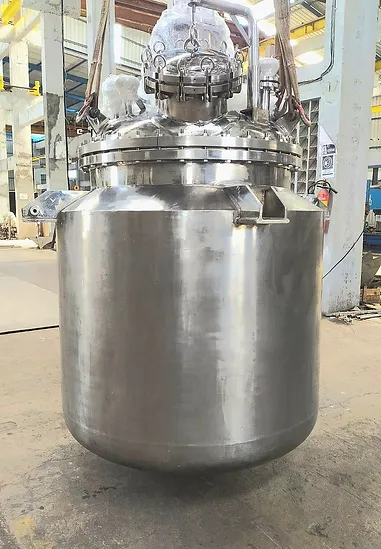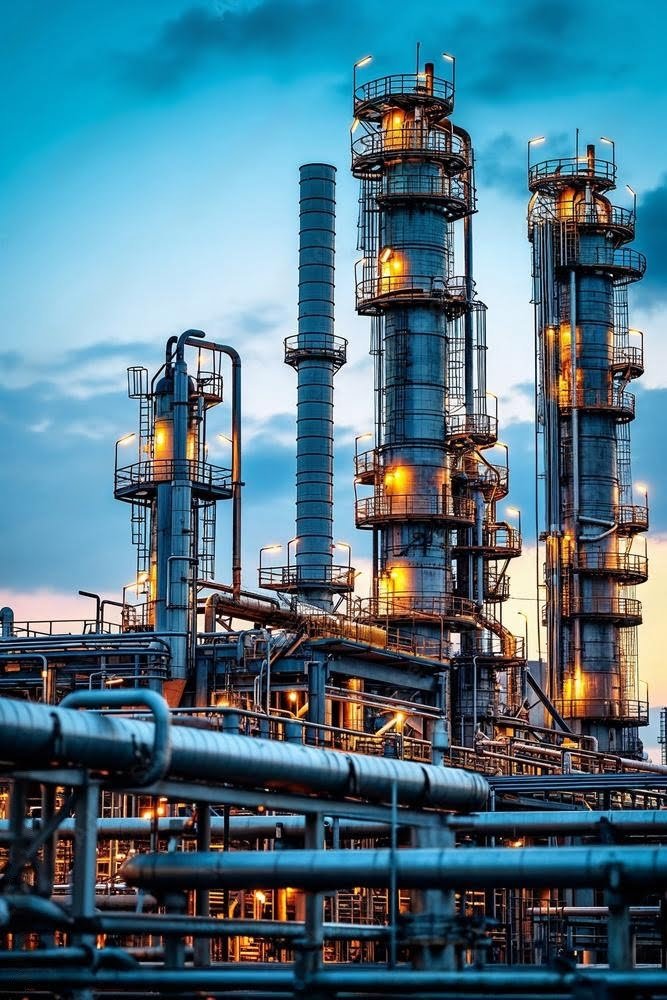The Role of High-Quality Reactors in Pharmaceutical Manufacturing

The Importance of Reactors in Pharmaceutical Manufacturing
Reactors are used for a variety of processes in the pharmaceutical industry, including synthesis, mixing, crystallization, and polymerization. These processes often involve complex chemical reactions that must be carefully controlled to ensure the desired outcome. High-quality reactors help in achieving:
- Consistency and Reproducibility: Reactors provide a controlled environment where chemical reactions can occur consistently. This is vital in the pharmaceutical industry, where even minor variations can lead to significant differences in the final product.
- Safety: The pharmaceutical manufacturing process involves handling various chemicals, some of which can be hazardous. High-quality reactors are designed to withstand high pressures and temperatures, ensuring safe operation and reducing the risk of accidents.
- Efficiency: Efficient reactors enhance the speed of chemical reactions and improve the yield of the desired product. This directly translates to cost savings and higher productivity.
- Scalability: Reactors used in the development phase can be scaled up to accommodate larger production volumes without compromising on quality. This is essential for bringing pharmaceutical products from the lab to the market efficiently.
Material Choices for Reactors
The choice of materials used in the construction of reactors is critical. Different materials offer various advantages depending on the specific requirements of the chemical processes involved. Some common materials used in pharmaceutical reactors include:
- Stainless Steel (SS316L and SS304L): Known for its excellent corrosion resistance and durability, stainless steel is a popular choice for many pharmaceutical applications. It is suitable for handling a wide range of chemicals and is easy to clean, which is crucial for maintaining hygiene standards.
- Hastelloy (C-276 and C-22): This alloy is highly resistant to corrosion, making it ideal for processes involving aggressive chemicals. Its robustness and longevity make it a preferred material for high-stress environments.
- Inconel (600 and 625): Inconel alloys are known for their high-temperature strength and resistance to oxidation and corrosion. They are particularly useful in processes that require high thermal stability.
- Nickel (200/201): Nickel offers excellent resistance to a variety of corrosive environments and is often used in reactors handling highly reactive chemicals.
- Monel (400): This alloy is resistant to both corrosion and high temperatures, making it suitable for demanding chemical processes.
Precision Engineering in Reactor Design
The design and engineering of reactors are as important as the materials used. Precision engineering ensures that reactors meet the specific needs of pharmaceutical manufacturing, including:
- Agitator Systems: These are essential for mixing and ensuring uniform reaction conditions. Different types of agitators, such as top-entry magnetic drives and mechanical seals, can be customized to suit the process requirements.
- Temperature and Pressure Control: High-quality reactors are equipped with advanced control systems to maintain precise temperature and pressure conditions. This is crucial for ensuring the consistency and safety of chemical reactions.
- Scalability: Reactors should be designed to scale from laboratory to industrial production without compromising on performance. Modular designs can facilitate easy scaling.
- Cleaning and Maintenance: Ease of cleaning and maintenance is vital in the pharmaceutical industry to prevent cross-contamination and ensure compliance with regulatory standards. Reactors with smooth, easy-to-clean surfaces and minimal dead zones are preferred.
High-quality reactors are the backbone of pharmaceutical manufacturing, ensuring that complex chemical processes are carried out safely, efficiently, and consistently. The choice of materials and precision engineering in reactor design play a crucial role in achieving these goals. By investing in top-notch reactors, pharmaceutical companies can enhance their production capabilities, maintain high standards of safety and quality, and bring products to market more efficiently. Special Metal Industries is dedicated to providing the best-in-class reactors tailored to meet the unique needs of the pharmaceutical industry, ensuring the highest levels of performance and reliability.
Learn More
For more information on our sustainable practices and equipment offerings, visit our pages on Reactors and Autoclaves, Process Vessel and Tanks, Hydrogenators, Pilot Plant Systems, Distillation Columns, Heat Exchangers and Condensers, and Large Size Pipe and Pipe Fittings.
Check out this Embracing Sustainability: The Eco-Friendly Applications of Exotic Metals
Check out this: The Price of Rarity: Factors Affecting the Cost of Exotic Metals
Check out this: Embracing Sustainability: The Eco-Friendly Applications of Exotic Metals
Check out this: The Importance of Material Selection in Chemical Equipment Manufacturing
Check out this: Pioneering the Future of Mining: Extracting Exotic Metals Sustainably
Check out this: The Role of High-Quality Reactors in Pharmaceutical Manufacturing
Check out this: The Future of Exotic Metals in Emerging Applications and Technological Advancements
Check out this: Ensuring Reliability: The Critical Role of Quality Assurance in Large Size Pipe and Pipe Fittings
Check out this: Working with Exotic Metals: Fabrication Techniques and Safety Tips

